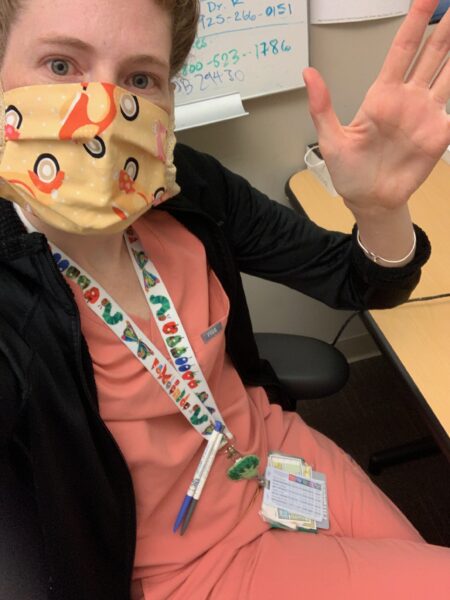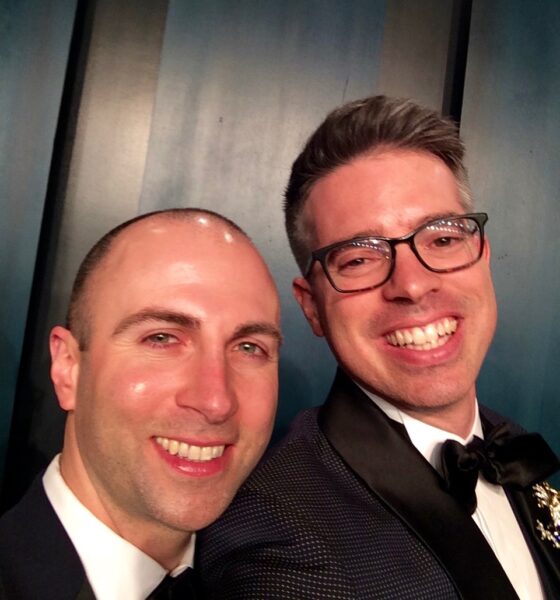Under One Roof: How COVID-19 Turned My Apartment Building Into a Community 
I live in a tall condo building with hundreds of neighbours in Oakland, California. The San Francisco Bay Area has been under lockdown for five weeks now, though many of us have already lost count.
These are long days. Sometimes I forget to eat. I sit in front of my laptop at my kitchen table β which is also my dining room table β and mark time by counting the number of delivery vans in the driveway from Amazon. Everyone in my building is ordering in and no one is venturing out.
And I’ve started to wonder: how are we all coping? How has the coronavirus changed our lives so far, and how will it change us as a building? As neighbours?
We live solitary lives behind our 119 doors. And yet we’ve never had more in common. The threat we face from outside is invisible, terrifying and real. And all of a sudden, we’ve come to depend on each other to stay healthy. One person’s COVID-19 exposure could endanger others in proximity. We all need to protect each other at the same time.
Possibly no one in the building understands the threat better than Katie Stephenson. She’s a pediatrics resident at a local hospital, and she lives on the second floor. She regularly works 12-hour shifts at the hospital, where she sees children who have been admitted because their parents are afraid they might have COVID-19.
‘I just assume that I’ve been exposed’
When she comes home from work, the first thing she does is strip off her scrubs and take a long shower with a lot of soap. “Because it’s not only just the germs, but it’s also the sweat and everything from being in the hospital and trying to sleep on the little cots there, and being exposed to all the coughing,” she says.
Katie is not just trying to stay clean. She’s trying to protect our neighbours from the coronavirus β since she thinks it’s only a matter of time before she becomes infected herself.
I just assume that I’ve been exposed, or that I’ll be exposed again. So my mission is just to keep my germs confined to my little space and not let them get out,” she shrugs.

Kate Stephenson at work at Oakland Medical Center.
The prospect of infection doesn’t scare her. But she knows she could infect our neighbour Judy Rosenberg, a woman in her 70s who lives just two doors down. Judy is an improvisational pianist who keeps a concert piano in her living room. She doesn’t find herself wanting to play that much these days, though.
“I just feel an overriding sadness, and I have felt depression in my life. The amount of deaths per day is just staggering to me,” she says. “I’m in my early 70s and nothing like this has ever happened to my generation. Even 9/11 was horrible β¦ but it was an event; it came and it went.
“This is of a different character, and this has a quality of war to it,” she adds.
Judy’s days revolve around not getting sick; the outcome would likely be far worse for her than for Katie. She still goes out every day with a mask on for walks and groceries, but she’s shut in the rest of the day, emailing friends and reading spy novels to pass the time. She tries not to watch the news.
Katie and Judy’s lives have little in common, but it struck me that β now more than ever β what we do to protect each other makes a stark difference β maybe even between life and death.
Our land-based cruise ship
Gina Belleci and her girlfriend Jessica Holt, my neighbours on the sixth floor, made their unit into a shared office space after the lockdown. They settled into a routine, dropping food off for Gina’s mom once a week to keep her from being exposed in the grocery aisles. They also took care of their neighbours, shopping for an elderly friend on the eighth floor who really should not leave the building.
But as the news worsened and the disease’s virulence became more widely understood, they made the difficult decision to clear out of our building and go live with Gina’s mom. They were worried that living with 180 people gave them more potential exposure to COVID-19, and they feared transmitting it to Gina’s mom on those weekly visits.
“I either need to choose being with my mom, or we need to really commit to this land-based cruise ship we live on, which is so big and has so many people coming in and out. And quite frankly, I don’t know that anything’s being cleaned above and beyond,” says Gina.
“Land-based cruise ship.” I hadn’t quite thought of it that way, but there is a concern here about sanitation. Our building’s maintenance man has gone home, and there is no cleaning going on. All of the building’s common touch points could now be vectors for infection. Elevator buttons. Door knobs. I’ve taken to wearing gloves just to go downstairs. When people see me inside an elevator they’re waiting for, they give a tight smile and wait for the next one. Even the mailroom has started to feel a little snug.

But a lot of nice little things have happened in my building, too. Several neighbours left notes on the bulletin board in the lobby, offering to help anyone who needs it. On
e person organized the entire seventh floor into a group text, so that when someone’s leaving for a grocery run, they can take requests and minimize the number of trips from the building.
We’re also connecting in new ways. My sixth-floor neighbour Guillaume Chartier, a fellow Montrealer, dropped off a slice of homemade lemon meringue pie after I interviewed him for this story. I had my first real conversation with my third-floor neighbour Ernesto Victoria, who has lived above me for five years but with whom I’ve mostly exchanged only pleasantries.
And after a few people started meeting on the roof to watch the sunset, it turned into a socially-distant Friday happy hour where everyone brings their own drink and stands at least two metres apart.
This pandemic has changed our world, but it has also changed our building. I’ve met more neighbours in the last week than I’ve gotten to know in the past five years. I already feel better knowing I have so many people to talk to who are facing the same situation β the same questions β as I am. We may all be behind our doors for now, but we really are in this together.
© 2024 Julia Scott.
